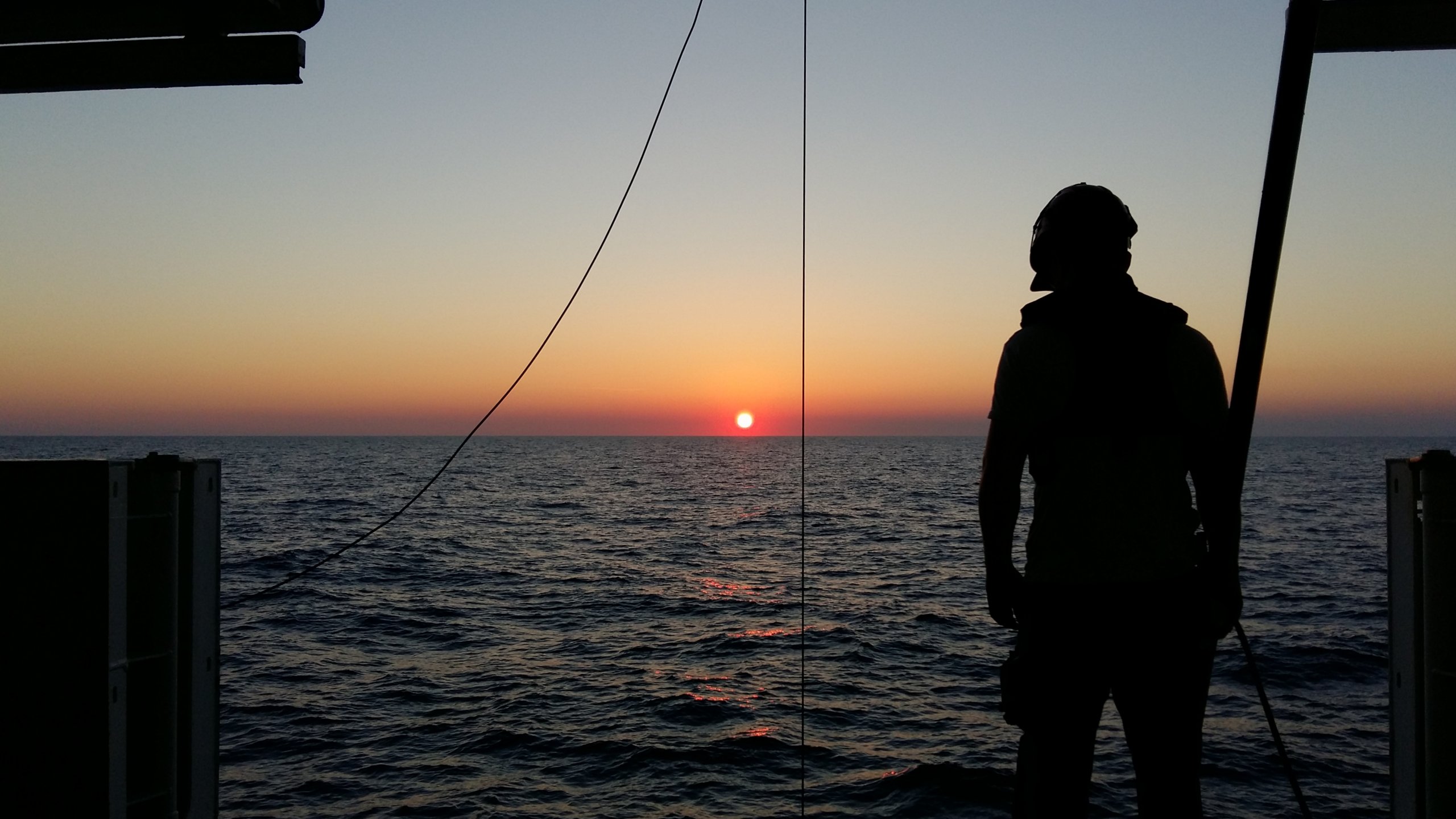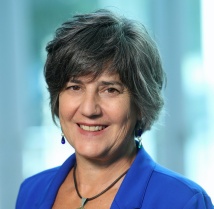
Dr Anya Waite was appointed co-chair of the Global Ocean Observing System (GOOS) steering committee in October 2020. She is the first woman at the head of the committee since its creation in 2011. As the UN Decade of Ocean Science for Sustainable Development gets underway, we caught up with Anya to find out more about the priorities for GOOS.
How did you get involved with the Global Ocean Observing System (GOOS)?
Until recently I was only involved in GOOS as an oceanographer who contributes their data to the global data systems. I worked as an engineering professor in Western Australia for many years and then I got more involved in global observations through my role as head of biological oceanography at the Alfred Wegener Institute in Germany. I’m currently based in Canada, which is working to muster its own organizations for its data systems right now under The Canadian Integrated Ocean Observation System (CIOOS).
I’ve been involved in a number of discussions at the ‘Ocean Obs’ conferences about getting international communication working better, and I was approached to be co-chair of GOOS partly because of my experience of outreach and communication between different sectors, such as with policymakers and industry leaders. I’m coming to this as an insider in terms of being an oceanographer, but as an outsider within GOOS, and I think that outside perspective can help support a rethink about how the organization is operating.
The GOOS released a new strategy in late 2019. What are the key priorities for the next few years?
GOOS has grown almost organically since the early days when all the different observing clusters came together and decided to act globally. It’s now getting so big and so important that we feel it has to be reenvisaged.
We’ve just received a major report from a consultant on the structure of GOOS and it has very clear, far-reaching recommendations about what we might do to restructure GOOS. There have been criticisms of how GOOS is operating under the UN. It’s critical that GOOS works with the UN, because we need the engagement of nations, but at the same time the related governance for an observing system can be challenging. We want and need to value the UN connection, but we also need to operate in a way that is nimble and responsive to observation needs.
Communication is a challenge for all these kinds of organizations and networks, and so improving communication systems is a priority. I have a wonderfully steady and clear-headed co-chair in Toste Tanhua, and we have super-competent support from the IOC.
The biggest challenge is that GOOS is really under-resourced in what it is trying to do. As a comparison, meteorological observations systems are securely funded to around 70 %, in contrast to between 20 and 30 % for ocean systems. The ocean observing system is much less secure: it’s been driven by individuals writing grant proposals, spending the money and then writing other proposals. There has to be a sea change in how we fund the GOOS to really make it sustainable, and I’m hoping that the UN Ocean Decade will offer us the opportunity to make that message clear.
What kind of scientific questions might you be able to answer with more secure, longer-term ocean observations?
As an example, we’re having more and more extreme events, and so there’s increasing demand for better predictions for hurricanes, wildfires, droughts and other extreme events. This is something that affects us all – from individuals right up to big businesses and organizations, such as insurance companies and the military. Getting those predictions right is critical.
The National Oceanic and Atmospheric Administration (NOAA) has something called a ‘precipitation prediction grand challenge’, which looks at improving rain forecasting. It’s difficult to predict variability in winter rainfall in North America, and that has resulted in erroneous predictions, such as for past El Niño events. It’s estimated that a big part of understanding that variability will come from improving understanding of interactions with the ocean. For example, hurricane intensity is driven by sea surface temperature. We need better ocean observations in order to support the meteorological understanding. But ocean observations and atmospheric observations have traditionally been in different communities and we haven’t had this integrated knowledge. That’s a missed opportunity – getting the data from the ocean is crucial for predicting extreme weather.
Last year GOOS published a short report on how ocean observation systems had been affected by COVID-19. Is that still a cause for concern?
Absolutely: it also highlights that ocean observation activities can be insecure. Many cruises that were supposed to go out to repair moorings have been cancelled. Where previously we had three ships going out we’ve now got one ship going out, and so repair work has to be grouped together, and things get changed or delayed frequently. In addition, people are having to quarantine for two weeks before and after a cruise, which makes short cruises almost unworkable. The large international research vessels have to reduce the number of people on board, and to work out how to meet physical distancing rules. This will continue to be a big deal until vaccination is more widespread and the restrictions are lifted.
Could there be a shortfall of observation data over the longer term?
Some data will never be recovered. In other cases, things are not so bad. For example, the deployment of Argo floats has been reduced by about 10%. Because they have a two- to five-year lifetime, there may have been a six-month hiatus in data. If that becomes a three year hiatus, we’ll start seeing major losses.
Observing systems have different vulnerabilities. It’s always difficult and costly to get to the high latitudes, so only the really big institutions and countries with well-funded ocean research can do it. The number of big international vessels that can get out to those latitudes is small, and so when one of the big observing nations is affected it makes a big difference globally. There are major icebreakers that transit every year north-south between the Antarctic and the Arctic that have been unable to transit, and so you might have a year without data, for example.
In nations that are underserviced in terms of research vessels, oceanographers depend almost entirely on international collaborations, and now that’s become difficult. COVID-19 has had a few compounding effects that have really hit the ocean observations.
We’re speaking at the start of the Ocean Decade. What are you most looking forward to about the Decade?
What’s exciting for me is having the international conversations lifted up and amplified to really tackle the big issues. In Canada we’ve made some significant steps in certain areas, such as in the integration of indigenous knowledge. We believe that this is something we can help get visibility for at an international level.
The Ocean Frontier Institute has done a lot of work on ocean literacy, including in collaboration with researchers in Germany. It’s exciting to be able to bring international attention to the best of what we do.
What’s more worrying is that the Ocean Decade is not funded, and it’s currently being taken forward by volunteers. In some organizations you can be struggling to get your day job done and then be volunteering time for the Ocean Decade afterwards.
I’m hoping that by working together internationally we can highlight the importance of two or three key areas – such as ocean observations, ocean literacy and indigenous knowledge – and get some funding into those areas.
How can we capitalize on the ambitions of the Decade?
First of all we have to think about the key conversations that we’re going to choose to catalyse. We can’t do everything – it’s a very complex, active sector, and the organizers are going to have to think really carefully about how they bring everybody together.
We have to think about which things we choose to highlight. What would be the three things that we have to get done to avoid a systems collapse? To me the global ocean observing system is one of those things. And then everything follows from that: making sure that developing nations have adequate observations, making sure that we have sensors and equipment that are inexpensive and easy to deploy. There are wonderful new technologies available, for example to monitor illegal fishing from space.
Those kinds of things are going to be transformative. The danger with the UN Decade is that there’s so much we could possibly do that we risk just doing a lot of little things. The key will be really pulling together and focusing on a few big things, making sure that the funding flows and that conversations around the Decade are well moderated.

Photo via Dalhousie University.
Anya Waite
Anya Waite is Associate Vice-President Research (Ocean), Dalhousie University, Canada, and Scientific Director of the Ocean Frontier Institute. Waite previously served as Section Head of Polar Biological Oceanography at the Alfred Wegener Institute in Bremerhaven and as Professor of Oceanography at the University of Bremen. Her research interests include nitrogen fluxes in polar oceans and particle dynamics in mesoscale eddies.
Heading photo: Cecile Guieu (distributed via imaggeo.egu.eu).